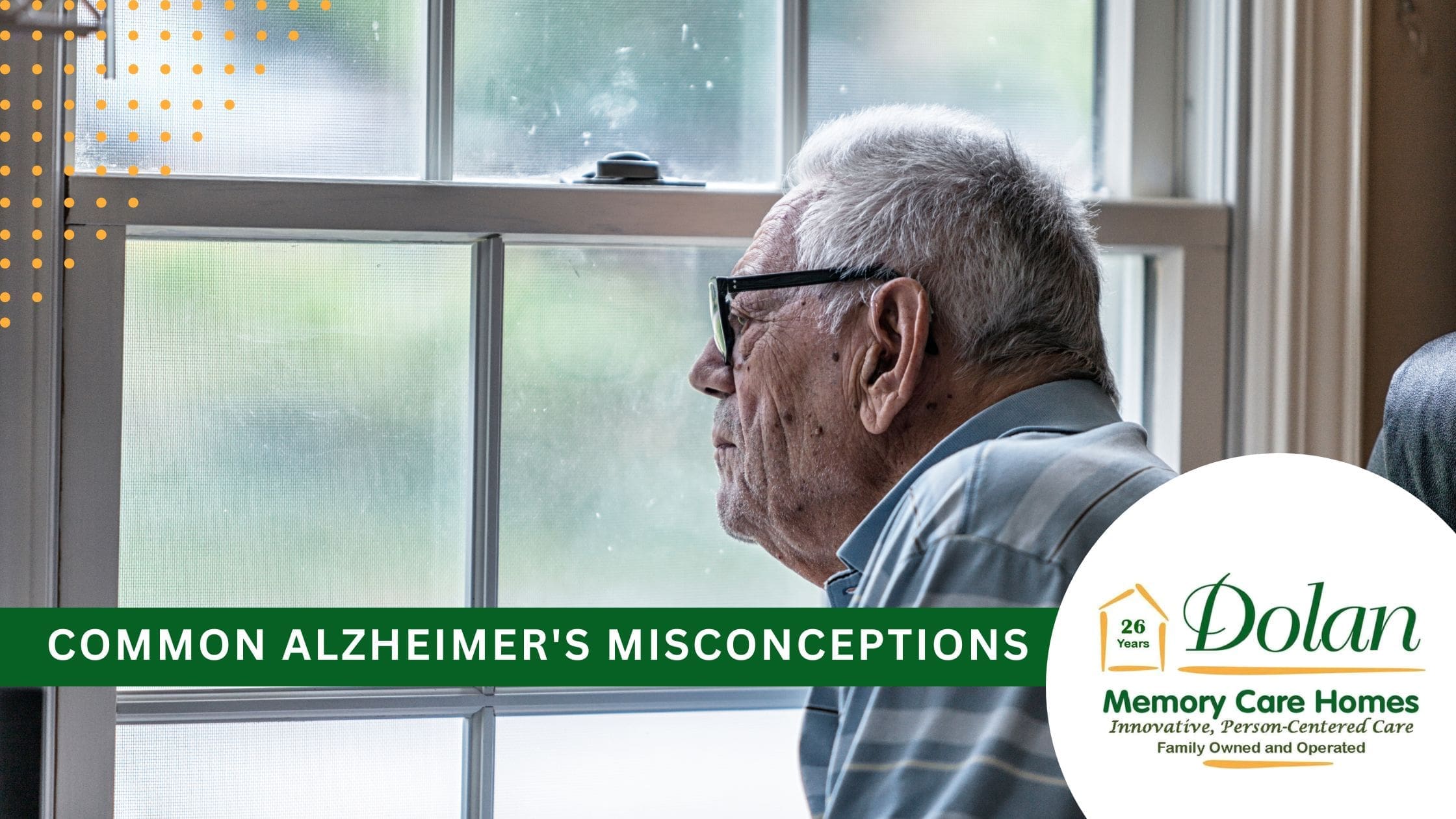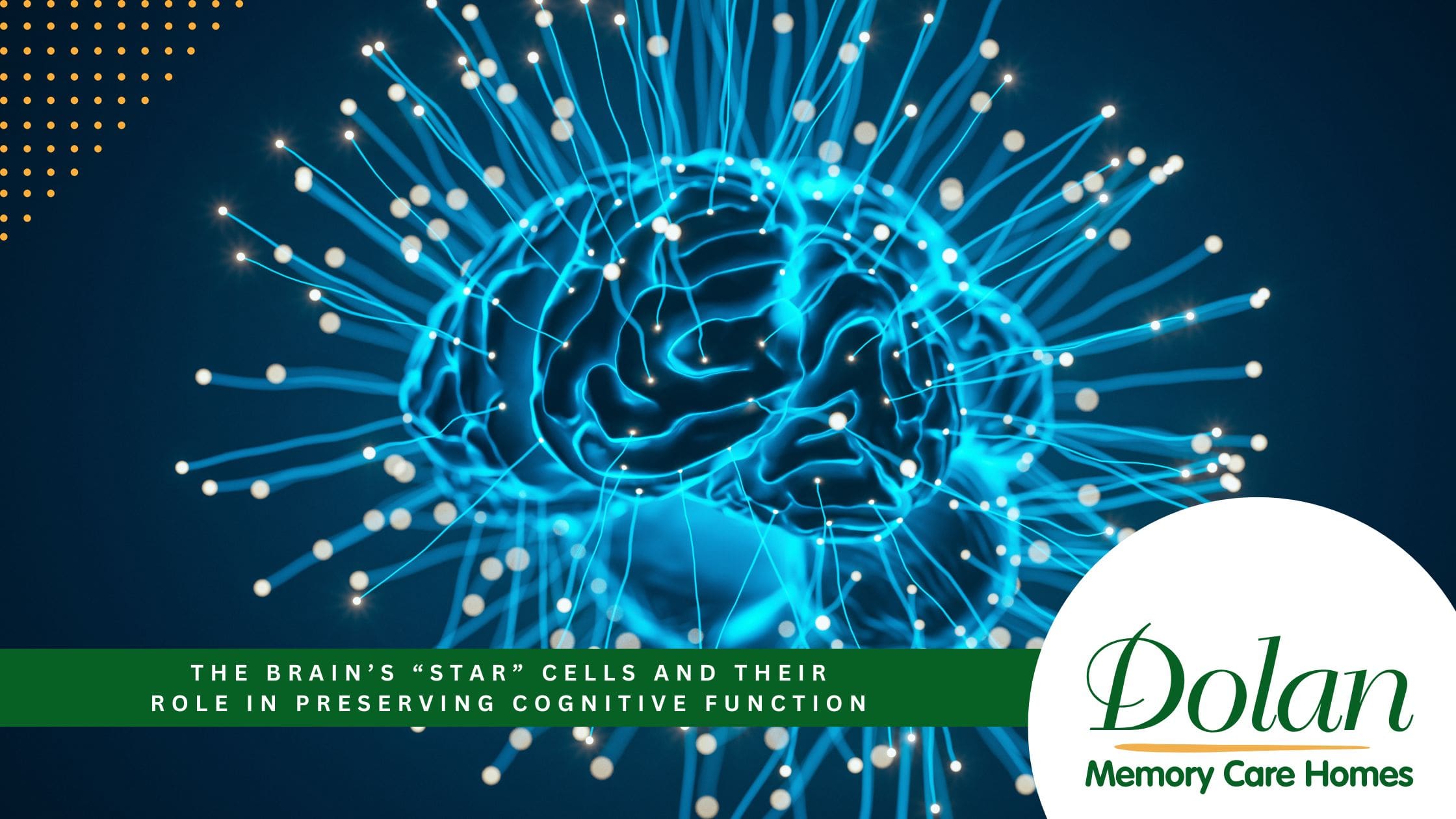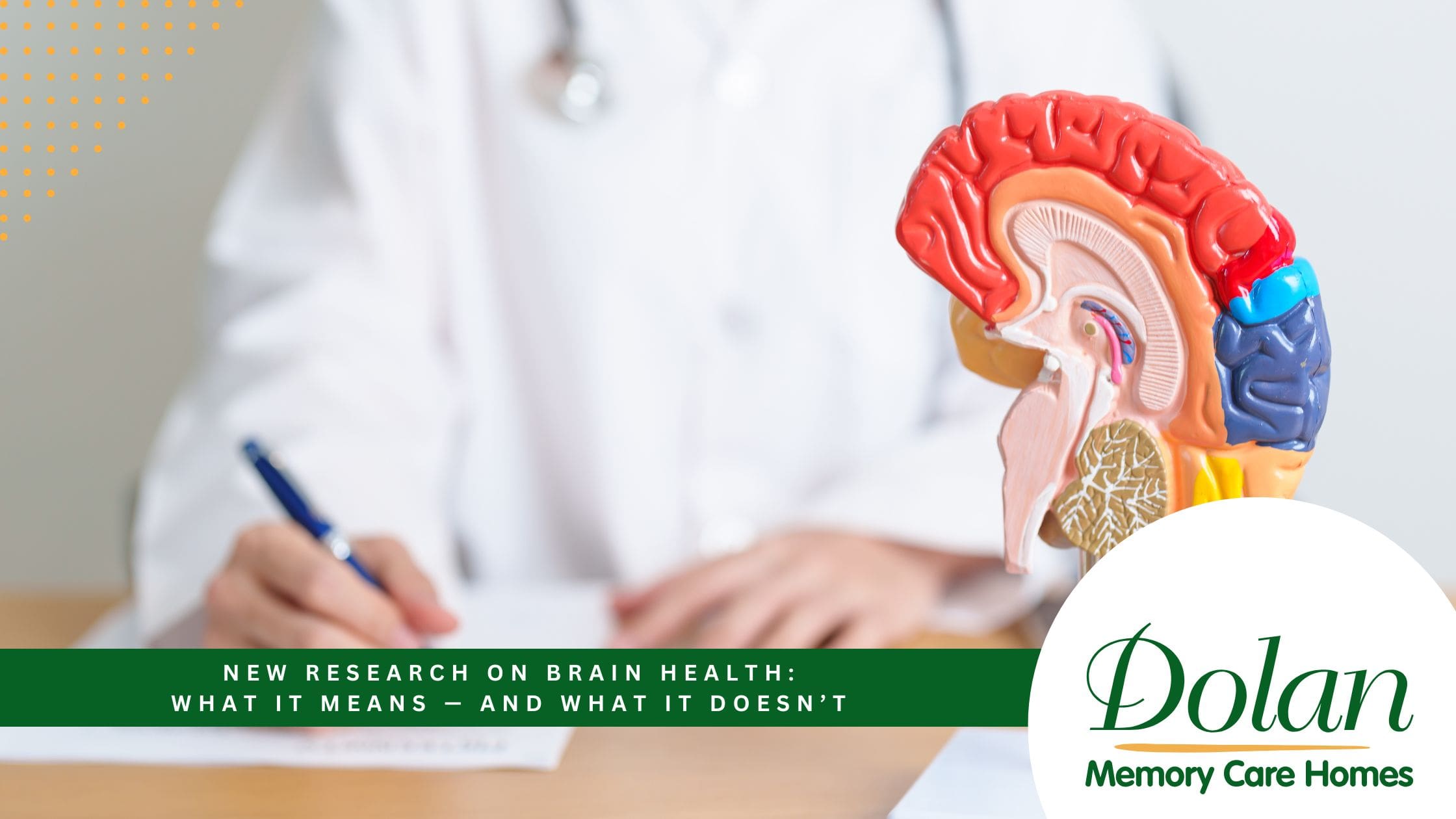dMuch more is known about Alzheimer’s disease today than it was 50, or even 10, years ago. However, there continue to be many common misconceptions about Alzheimer’s disease that are widely believed. This misinformation includes everything from Alzheimer’s diagnosis to Alzheimer’s symptoms to Alzheimer’s disease treatments and cures. Here are some of the most common Alzheimer’s misconceptions, and the truth behind them.
Myth 1: Alzheimer’s and Dementia Are The Same
Oftentimes, people use the terms Alzheimer’s and dementia interchangeably. However, the two are not the same. The key difference between Alzheimer’s and dementia is that dementia is a general term for memory impairments, while Alzheimer’s is a specific brain disease. Alzheimer’s disease is actually the most common type of dementia.
That is not to say that Alzheimer’s and dementia aren’t similar. The treatments and ways symptoms can be managed do often overlap. The type of care needed is also similar. For instance, most memory care homes provide specialized care for both those with Alzheimer’s and those with dementia.
Myth 2: Diet Soda Causes Alzheimer’s
The idea that diet soda and dementia are related has been floating around for years. However, it lacks evidence. The FDA has found no scientific evidence that artificial sweeteners cause memory loss. So while you may see articles claiming that diet soda causes Alzheimer’s, we do not have any scientifically-backed reason to believe this is true.
Myth 3: Alzheimer’s Can Be Cured
Another topic with a lot of misinformation floating around is the idea of Alzheimer’s cures and Alzheimer’s treatments. There is no known cure for Alzheimer’s. Research is constantly being conducted, but for now we are only able to treat and manage symptoms, not cure people of the disease.
Memory care communities can be very helpful in managing symptoms and slowing the progression of Alzheimer’s. While it can’t be cured, we do know of a number of ways to treat Alzheimer’s. Consistent social interactions, creative endeavors, and consistent mental stimulation have all been shown to slow cognitive decline. Memory care homes treat and care for those with Alzheimer’s and dementia in a specialized and research-supported way.
Myth 4: Being a Caregiver For A Loved One With Alzheimer’s Is Easy
If you have a family member or loved one who is diagnosed with a memory impairment, one option is for you to care for them in your own home. While this might sound manageable at first, the reality is that caring for a loved one with Alzheimer’s is challenging. As their cognitive decline progresses, they will need more and more care. Caregiving can quickly become a full-time job. Moving your loved one to one of the best memory care homes can provide you peace of mind and ease the burden of full-time caregiving.
Myth 5: People With Alzheimer’s Can’t Connect To The World Around Them
For some people, it is hard to understand how those with Alzheimer’s think and interact. It may seem like they are in their own world at times, but individuals with Alzheimer’s are still able to participate in society and make meaningful connections to the world around them!
Just because many individuals with Alzheimer’s don’t remember all the people or things from their life before, that does not mean they are completely disconnected or isolated. Even with Alzheimer’s disease, people can process information, engage in cognition, experience emotions, and connect within the moment they are living in!
Myth 6: People With Alzheimer’s Can’t Be Happy And Fulfilled
Finally, it is often perceived that an Alzheimer’s disease diagnosis prevents people from feeling happy and fulfilled in the rest of their life. That couldn’t be further from the truth! With the right care, individuals with Alzheimer’s and dementia can live very happy and fulfilling lives! Memory care offers opportunites for socialization and mental stimulation that can bring joy. Engaging in daily activities like chores and yardwork can give those with Alzheimer’s a sense of purpose and fulfillment. Although life may look quite different than it did before, expert memory care can help keep it fun and purposeful!
These are just a few of the myths about Alzheimer’s disease that are commonly believed today. As we learn more about the disease, we will continue to debunk more and more myths surrounding it.
Sources:
https://hr.harvard.edu/files/humanresources/files/november_2022_senior_sense.pdf?m=1666889812
https://www.alz.org/alzheimers-dementia/what-is-alzheimers/myths





